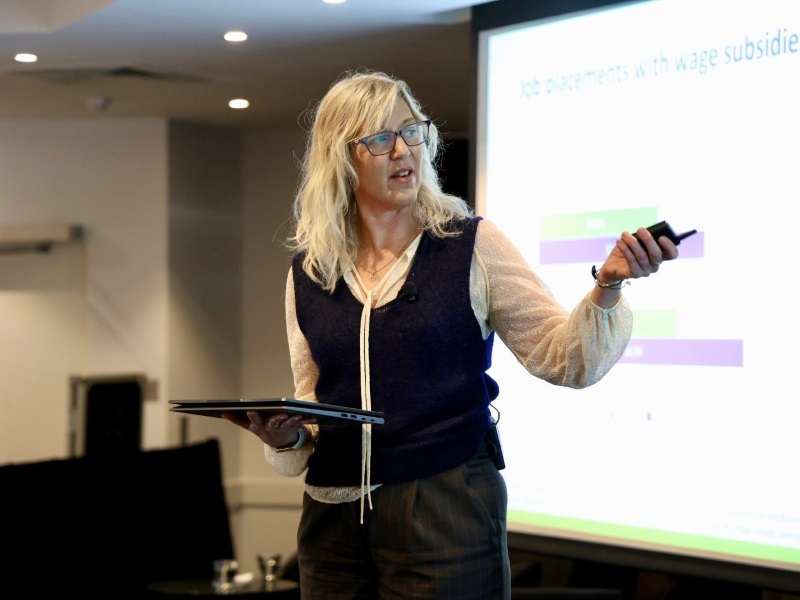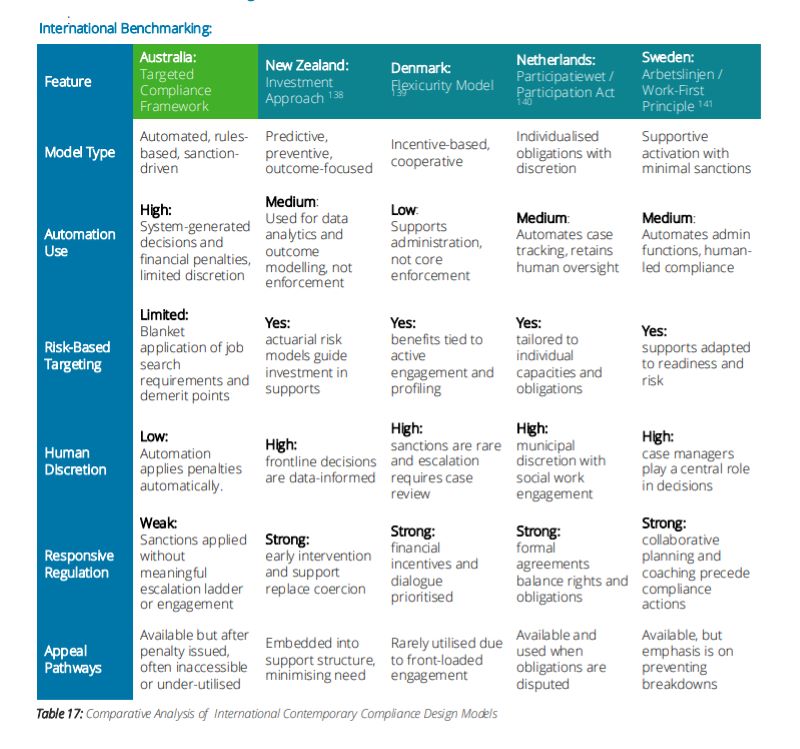An urgent review of the federal government’s automated welfare compliance system shows Australia’s punitive scheme is a global outlier, adding to doubts about the capability and accountability of senior public servants deploying technology.
The international comparison stands out in an assurance review of the Targeted Compliance Framework (TCF) released earlier this month by its operator, the Department of Employment and Workplace Relations (DEWR).
Built by the Coalition in 2018 and sustained by the Albanese government, the system assumes non-compliance and is structured to penalise rather than support engagement.
The new review shows the TCF is doing so through an almost entirely automated IT system plagued with defects.

None of the other nations the TCF was benchmarked against in the assurance review – New Zealand, Denmark the Netherlands and Sweden – rely on high automation. When it is used, it is mostly for analytics and not for enforcement.
Every other nation also uses risk-based targeting in their compliance systems, while the TCF automates a blanket application of mutual obligations and demerit points.
The automated penalties are applied in Australia with almost no discretion for individual cases despite legislated requirements and in complete contrast to the other nations’ high levels of human intervention.

In fact, Australia’s TCF is behind the other nations in all six of the benchmarking categories, including being a “weak” example of responsive regulation governments increasingly use to support and ‘nudge’ participants to better outcomes.
It’s a dangerous approach, the assurance review found.
“Unlike responsive or graduated compliance models, the TCF does not adjust based on participant behaviour, intent, or history. It does not escalate in proportion to risk, nor does it incorporate fairness checks or safeguards prior to the imposition of penalties,” the review found.
“This rigidity means that a single design flaw can rapidly translate into punitive outcomes for thousands of participants, without the system recognising the problem or initiating a correction.”
Accountability in an age of AI
The review goes on to warn about several serious known design flaws, governance gaps and IT defects, adding to concern from the Commonwealth Ombudsman that it is operationalising unlawful decisions.
The DEWR Secretary began pausing cancellation of support payments a year ago as the concerns grew that the TCF is plagued with technology faults and not operating in accordance with policy or social security laws.
But “more concerning” than the broken system is the lack of awareness about it in DEWR, the assurance review found.
“… senior departmental officials with direct accountability for program delivery, system design and policy oversight were not aware of these deficiencies,” the review said.
“These issues had been acknowledged in public statements made by the Secretary, yet they remained unknown to relevant departmental officials as late as… May 2025.”
Greens Senator David Shoebridge says the Robodebt scandal has already exposed a concerning lack of accountability among Canberra’s senior bureaucrats.
“It’s a self defending, self sealing club. They behave badly in one area, and then they just disappear and they pop up in another area, sometimes with a promotion and a pay rise.”
“And I think there needs to be a better culture of accountability,” he told InnovationAus.com.
Senator Shoebridge says a wave of AI technologies now threaten to turbocharge unfair government technology.
“I don’t have faith at the moment that the Commonwealth can adequately roll out AI in any kind of regulatory space… They can’t identify how the decisions are made,” he said.
“And if you’re making decisions to remove someone from an entitlement, to commence enforcement action against somebody, and you can’t prove how it happened [or] you can’t identify even the chain of reasoning that got you to that point, you should not be taking that action.”
The TCF continues to operate but with payment cancellations paused. Payment suspensions imposed by private employment services firms continue.
Do you know more? Contact James Riley via Email.

